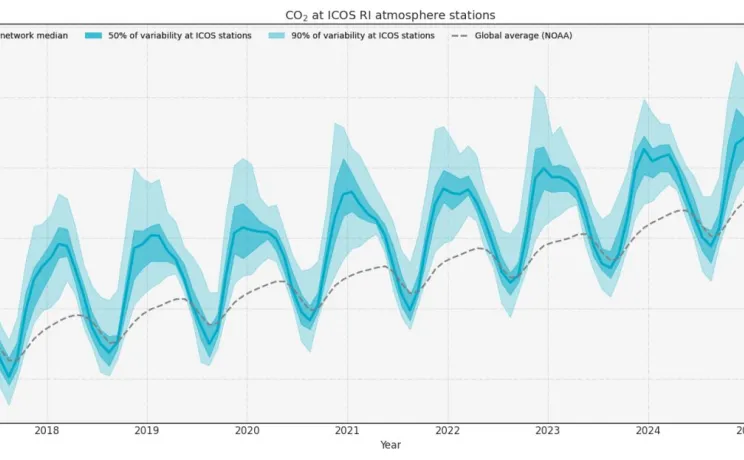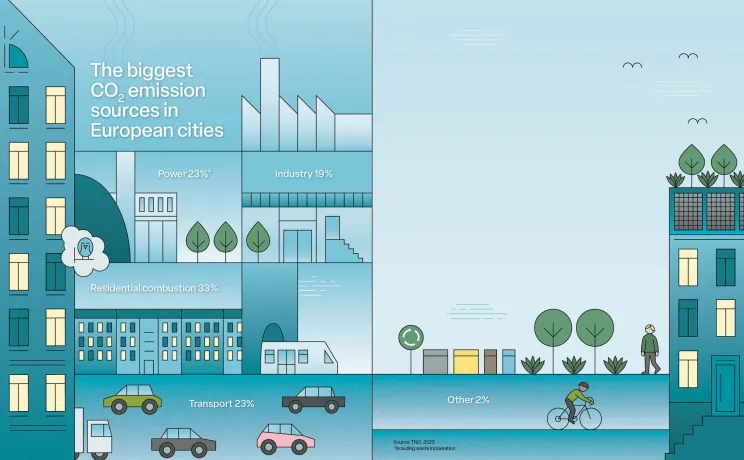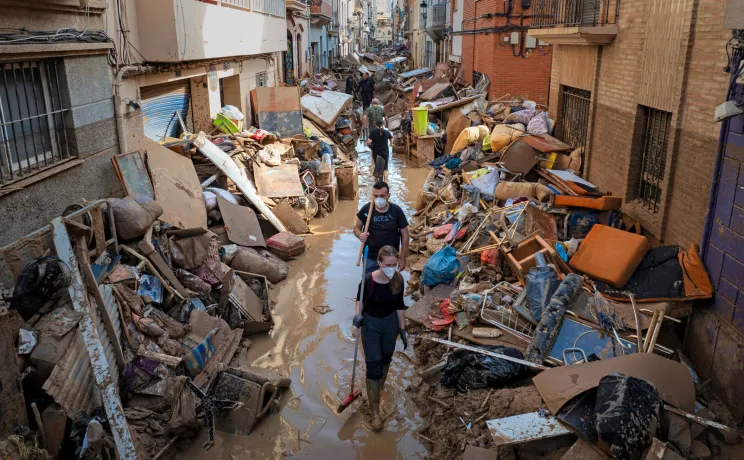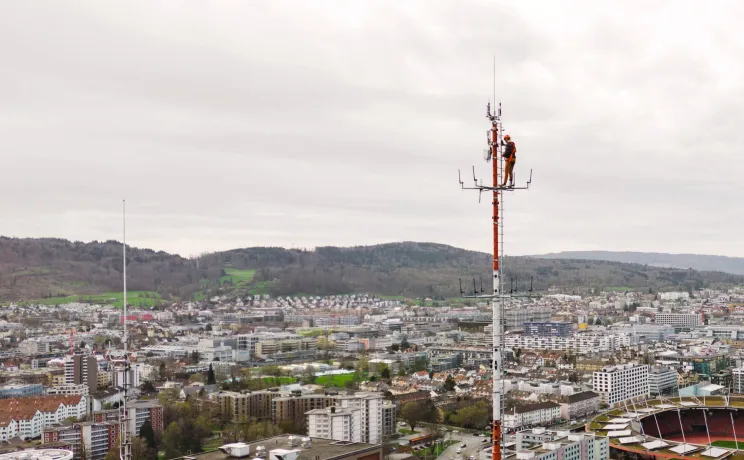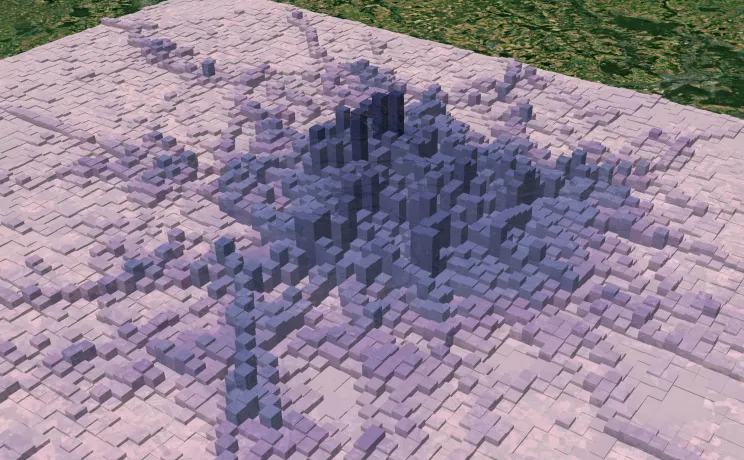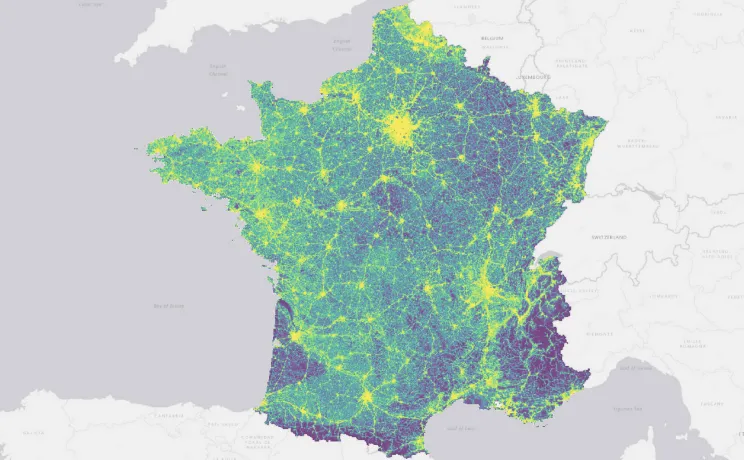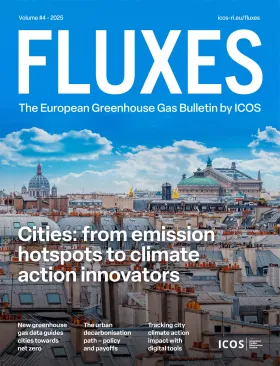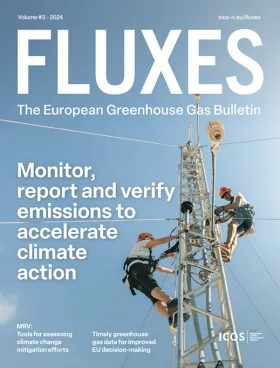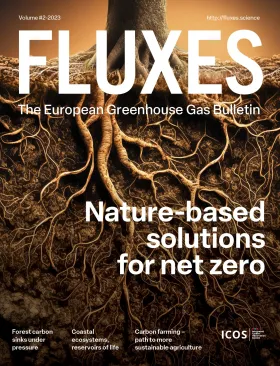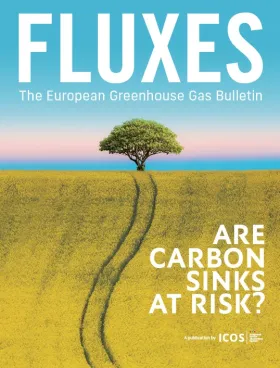Volume 4
Cities emit a large amount of greenhouse gases, but they also hold significant potential to mitigate the climate crisis. While national governments set ambitious climate targets, cities are where policies turn into tangible action.
For a city to truly tackle its greenhouse gas emissions, it must first know what it’s up against. Cities need accurate and timely emissions data to monitor and track climate action progress.
This volume of FLUXES focuses on greenhouse gas emissions in cities. The topics are the following:
- New emissions data guides cities towards zero carbon
- Decarbonising cities: transport, buildings and nature
- Tracking city climate action impact with digital tools
FLUXES is an annual publication by ICOS, the Integrated Carbon Observation System – a European Research Infrastructure. The aim is to highlight topical climate issues to policy advisers and climate journalists. The first volume was published in 2022.
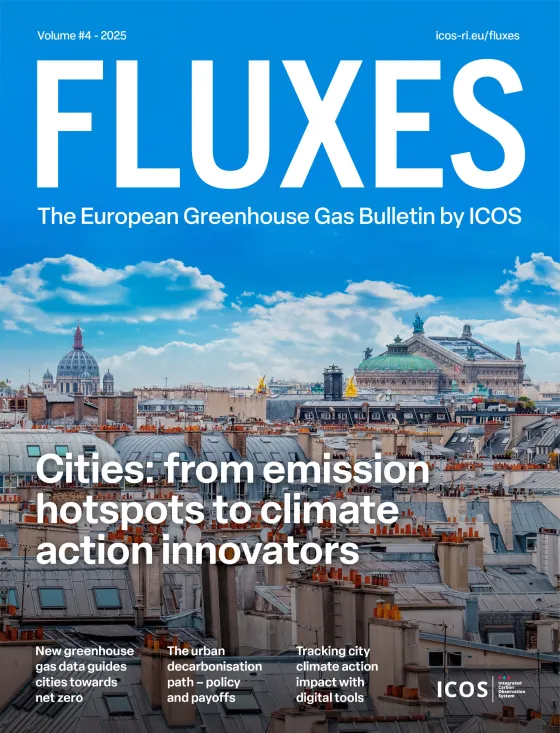
Cities are on the front lines of climate action, and they need scientific knowledge to support their ambitious decarbonisation plans. Providing cities with the practical tools they need to achieve their climate goals is an important purpose of climate science.
Cities emit a large amount of greenhouse gases, but they also hold significant potential to mitigate the climate crisis. While national governments set ambitious climate targets, cities are where policies turn into tangible action.
Inhabitants of Paris and Munich have more faith in local authorities than in national governments when it comes to climate action.
Cities worldwide are increasingly vulnerable to a range of climate hazards. Many already face severe impacts, with threats such as flooding, extreme heat, drought, and wildfires becoming more frequent.
Decarbonising cities is not just about reducing emissions: it is about building healthier communities, robust economies, and increasing climate resilience. This requires a fundamental reimagining of urban planning, transport, energy systems, and green spaces.
Knowing whether climate actions are effective is crucial for cities, but gathering precise, up-to-date emissions data is a challenge. Advanced sensor technology can help, providing frequent, accurate updates and empowering urban centres striving towards a low-emission future.
Walking through the streets of Zurich, you may not notice the small, grey devices working quietly across the city. Yet these boxes are providing a wealth of information on the Swiss city’s progress in reducing its greenhouse gas emissions.
In a bid to better understand the impact of its climate mitigation measures, the German metropolis of Munich is updating the way it tracks greenhouse gas emissions. Over 100 atmospheric sensors were installed across the city, providing policymakers with a more nuanced picture of the city’s emissions.
The installation of atmospheric observation sensors has allowed Paris to more accurately assess the amount of carbon it emits. New data confirms that the French capital’s greenhouse gas emissions have decreased by 25% in the last decade.
How do cities know if their climate actions are working? Innovative tools and data services are emerging to answer this critical question. These solutions, from open data initiatives to online platforms, are providing cities with the information required to measure progress, optimise strategies, and achieve their environmental goals.
Paris is on a promising track to meet its 2030 climate targets – but the city’s ambitious goal of becoming carbon-neutral by 2050 will require a far more significant set of actions. This is the central finding of a recent ICOS Cities study using a new climate scenario tool.
All FLUXES volumes
Cities: from emission hotspots to climate action innovators
Volume 4, 2025
MRV: A critical tool for tracking emissions and accelerating climate action
Volume 3, 2024
Nature-based solutions for net zero
Volume 2, 2023
FLUXES vol 2 highlights the potential and limitations of nature-based solutions for carbon removals from a scientific perspective. FLUXES is an annual scientific publication addressing climate change related issues supporting European policy-makers.
Are carbon sinks at risk?
Volume 1, 2022
This inaugural edition of FLUXES explores how long-term observation data can answer questions such as:
Has there been an acceleration of the increase of greenhouse gases in the atmosphere?’
Has extreme weather in Europe influenced the carbon cycle of ecosystems and, consequently, changed their ability to store carbon?’



